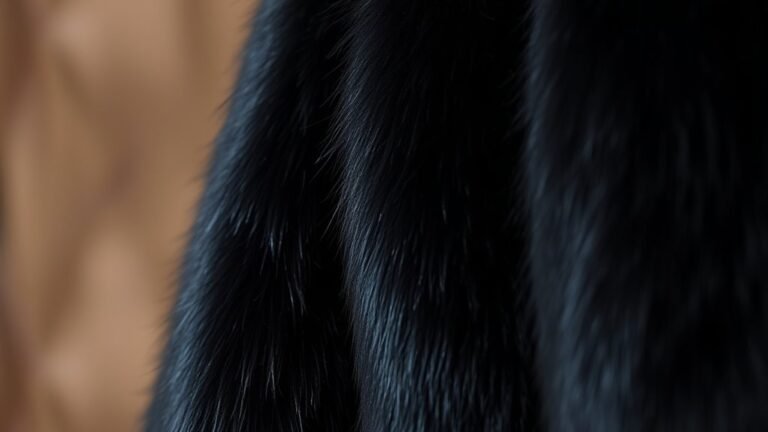14 Spiritual Meanings of Dead Hawks
Finding a dead hawk may feel unsettling, but it can offer significant spiritual insights. This experience encourages reflection on change and our connection to nature. It can also represent messages from the spirit world. By understanding the meanings behind this encounter, you can gain insights into life cycles and personal strength. What lessons can a lifeless hawk bring to your journey?
Consider the following spiritual meanings of encountering a dead hawk:
- Transformation: A dead hawk symbolizes the end of a phase and the start of new beginnings.
- Connection to Nature: It reminds you of your bond with the natural world and its rhythms.
- Messages from the Spirit World: Such an encounter could be a sign or message from spirits guiding or communicating with you.
- Life Cycles: It illustrates the natural cycle of life and death, encouraging acceptance of life’s changes.
- Personal Strength: The hawk’s strength can inspire you to tap into your power during challenging times.
- Awareness: It can serve as a reminder to be aware of your surroundings and the messages they carry.
- Clarity of Vision: Hawks are known for their keen eyesight; a dead hawk may symbolize the need for clearer perspective in your life.
- Freedom: Hawks represent freedom in flight, and their death may reflect a feeling of being trapped or restricted.
- Wisdom: Hawks signify wisdom; a dead hawk may urge you to seek knowledge in difficult situations.
- Letting Go: Encountering one may indicate it’s time to release something that no longer serves you.
- Protection: The hawk’s spirit may offer protection, reminding you you are not alone.
- Emotional Healing: It may indicate a time for healing emotional wounds, encouraging you to reflect.
- Introspection: This experience can prompt you to look inward and evaluate your life’s direction.
- Surrender: It encourages you to accept what you cannot change and find peace.
By interpreting the presence of a dead hawk, you can gain clarity and direction in your personal journey. What do you think it means for you?
Key Takeaways
- Finding a dead hawk signifies significant change, prompting personal growth and the release of unneeded aspects of life.
- It may convey messages from the spirit world, urging attention to signs and communication from ancestors.
- The encounter encourages reflection on mortality, enhancing appreciation for life’s fragility and connections with others.
- It inspires embracing life’s cycles, reinforcing the idea that endings lead to new beginnings and opportunities for growth.
- The dead hawk prompts a deeper connection with intuition, encouraging individuals to trust their instincts and inner guidance.
Transformation and Change
Finding a dead hawk can bring feelings of sadness or confusion.
However, this image can also represent significant change in your life. Consider this moment an invitation to think about your personal growth. Identify what parts of your life you need to release, just as the hawk has let go of its physical presence. This process is a crucial part of transforming your life.
The conclusion of one stage often creates space for new beginnings, encouraging you to let go of what no longer benefits you. Use the lessons from this symbol to guide your growth.
Messages From the Spirit World
Encountering a dead hawk can hold significant meaning. This event may represent a message from the spirit world. It invites you to pay attention to the signs in your life. Consider this moment a signal for spiritual guidance. Your ancestors may be trying to communicate with you. They could share important wisdom or lessons that resonate with you.
Every aspect of this encounter can reveal the details of their message. It might be a reminder to honor your ancestors’ legacy or to recognize your own strength.
Use this moment for reflection and to connect with your roots. As you explore these messages, you may feel a stronger bond with your family history. This connection can help guide you on your current path. Embrace this experience as a chance for growth and understanding.
Intuition and Inner Guidance
Intuition can guide you through life’s challenges. It often shares important truths that can help you make decisions.
To connect with your inner guidance, try these simple practices:
- Quiet Time: Spend a few moments alone to calm your mind.
- Writing: Jot down your thoughts and emotions; this can help you find answers.
- Nature Walks: Go outside and notice the sights and sounds around you.
- Listen to Your Feelings: Trust your instincts when they speak to you.
Use these methods, and you may discover a stronger connection to yourself and your place in the universe.
Embracing Life’s Cycles
Life unfolds in cycles. By understanding this, you can appreciate its changing nature. Embracing these cycles allows you to see beauty in every change.
Each ending leads to a new beginning, reminding you that change is part of your journey. You share these experiences with others, connecting you in meaningful ways.
Recognizing these cycles helps you build resilience and hope. Instead of resisting change, you can celebrate the lessons it offers.
This mindset allows you to feel more at home within yourself and strengthens your connections with those around you. Together, you can navigate this ongoing journey.
The Power of Observation
Observation reveals important truths about your surroundings. It uncovers details often found in simple moments.
By practicing mindful awareness, you can strengthen your connection to nature and to yourself. Here are some techniques to help:
- Breath Focus: Start with deep breaths to ground yourself in the present.
- Nature Walks: Walk slowly in nature, paying attention to colors, textures, and sounds.
- Journaling: Write down your observations to reflect on them and gain insights.
- Meditative Moments: Spend a few minutes each day observing your surroundings without judgment.
These practices can help you feel a sense of belonging and strengthen your intuition. They guide you to find deeper meanings in life’s symbols, including the presence of deceased hawks.
Embrace observation as part of your journey.
Lessons in Letting Go
Letting go is a tough but important part of life. It involves accepting grief and allowing yourself to feel deep emotions without blaming yourself.
Embrace the sadness; it helps you release what you hold inside. When a dead hawk appears, it reminds you that everything has its time.
Think about what you need to let go of, like past hurts, relationships, or dreams that didn’t happen. Recognizing these losses helps you heal.
As you let go, you make space for new beginnings and connect with others who face similar challenges. Remember, you aren’t alone in this process.
Accept the support around you as you work through your feelings.
Freedom and Independence
When a dead hawk crosses your path, it reminds you of the freedom and independence vital to your life’s journey. This moment encourages reflection on what freedom means to you and how it relates to your independence.
Here are four insights to consider:
- Self-Discovery: Identify the choices that shape who you are.
- Letting Go: Release what holds you back and welcome new opportunities.
- Chasing Dreams: Follow your passions to find your true self.
- Embracing Solitude: Cultivate strength in being alone, which fosters belonging.
These insights can empower you to reclaim your freedom.
Strength and Resilience
Finding a dead hawk can be a sad moment, but it reminds you of your own strength and resilience. Each experience in your journey teaches you about your inner power, even when facing sadness.
Like the hawk that once flew high, you have the ability to rise above difficulties. This symbol of strength encourages you to embrace your challenges, as they’re part of your growth.
Each setback, like the hawk’s passing, helps you gain more strength and wisdom. You aren’t alone; many people share this path.
Together, you can motivate each other to keep moving forward and thriving.
The Call to Inner Vision
Experiencing the loss of a hawk prompts you to reflect on your inner vision.
This moment encourages you to seek understanding and connection. Here are clear ways to guide your journey:
- Meditate: Spend time focusing on your breath. Allow your thoughts to settle.
- Nature Walks: Go outside into nature. Let its beauty inspire you.
- Journaling: Write down your thoughts and feelings. This can reveal important insights.
- Seek Guidance: Talk to mentors or trusted friends. They can help you see your path clearly.
Embrace this call and nurture your inner clarity.
Signs of Forthcoming Challenges
Seeing a dead hawk can bring feelings of unease. This sighting may hint at upcoming challenges in your life. Take a moment to pause and reflect.
Challenges may push your limits and test your strength, but they can also lead to personal growth. View these obstacles as chances to find your inner strength.
When you face difficulties, remember you have support from friends, family, and your community. Lean on them. Together, you can overcome these tough times and emerge stronger.
As you move forward, let the image of the hawk inspire you. Allow it to remind you to rise above the challenges and embrace your journey ahead.
Reflection on Mortality
Finding a dead hawk can lead you to think about your own mortality. This moment can inspire important reflections:
- Appreciate Life: Focus on what brings you joy—friends, laughter, and love.
- Recognize Death: Understand that life’s fragility can strengthen your connections and intentions.
- Define Purpose: Consider your journey and what matters most to you.
- Think About Legacy: Reflect on how you want to influence others and what you want to leave behind.
These thoughts can help you grow. Accept this awareness and let it improve your life.
Instead of avoiding the reality of death, use it to gain a better understanding of life and to strengthen the bonds with those you care about.
The Connection to Nature
Finding a dead hawk can be surprising, but it reminds us of our connection to nature.
This moment encourages reflection on nature’s role in our lives. The hawk, even in death, shows our link to the wildlife around us. Every creature, including this bird, has a role in our ecosystem, underscoring our place within it.
Recognizing this can enhance our appreciation for nature and promote respect for its cycles. In acknowledging life’s beauty and fragility, we realize that nature surrounds us and is a part of us, guiding our paths.
A Reminder of Personal Power
Encountering a dead hawk can remind you of your personal power. This moment encourages you to think about your inner strength.
Here are key points to consider:
- Resilience: Like the hawk, you have faced challenges. Remember the times you have overcome struggles.
- Intuition: Trust your instincts. They lead you on your true path, much like the hawk follows its way.
- Vision: Keep a wider view. You have the ability to see beyond the now and imagine your future.
- Connection: Recognize your place in the universe. You’re part of a larger community that supports you.
Reflecting on these points can help you connect with your strength and navigate your journey with confidence.
Awakening Spiritual Awareness
How can the sight of a dead hawk awaken your spirit? Seeing this bird may spark an important moment of reflection. By thinking about its presence, you can connect with your inner intuition. This connection helps you notice the small details in life and the messages they carry.
Take a moment to pause, listen, and reach within yourself to gain a clearer understanding of your role in the universe. Let the energy of the hawk lead you in this process. It encourages you to embrace change and let go of old beliefs.
As you grow in this awareness, you might feel more grounded and connected to the shared experiences we all face.
Frequently Asked Questions
What Does It Mean to Dream of a Dead Hawk?
Dreaming of a dead hawk symbolizes a significant loss in your life. This dream encourages you to connect with the hawk spirit. It serves as a reminder to focus on healing and transformation, even during tough times. Use this dream as a prompt to reflect on your feelings and seek comfort in your journey of recovery.
Are There Cultural Differences in Interpreting Dead Hawk Symbolism?
Cultural beliefs shape views of dead hawks, creating different symbols. Some people see dead hawks as bad omens. Others view them as signs of change or transformation. Understanding these interpretations can help people connect and empathize with each other. This knowledge encourages respect for diverse perspectives.
How Can I Honor a Deceased Hawk Spiritually?
To honor a deceased hawk spiritually, you can create offerings such as flowers or fruits. Collect its feathers with respect, as they symbolize a connection to the spirit. Accept its energy and find your place within nature and the cycle of life. Engage in simple rituals, such as lighting a candle or saying a few words to express your gratitude. These actions can help you celebrate the hawk’s spirit and acknowledge its role in your life.
Do Dead Hawks Carry Messages for Specific Individuals?
Dead hawks can hold special messages for you, especially if you feel a strong connection to them. It’s important to notice your feelings and instincts during these moments. They may reveal important insights into your life.
Can Finding a Dead Hawk Affect My Spiritual Journey?
Finding a dead hawk can have a strong effect on your spiritual journey. This encounter may encourage you to reflect on your life and inspire personal growth. Use this moment to increase your awareness and strengthen your connection with nature. Take time to consider what this experience means to you and how it can guide you in your path.

Liza Stockholm is an esteemed spiritual guide and the visionary behind Spiritual with Liza. With a profound passion for empowering others on their spiritual journey, Liza offers a blend of educational content and personal guidance. Her expertise in spirituality is rooted in years of dedicated practice and study, making her a trusted companion for those seeking enlightenment and inner peace.






